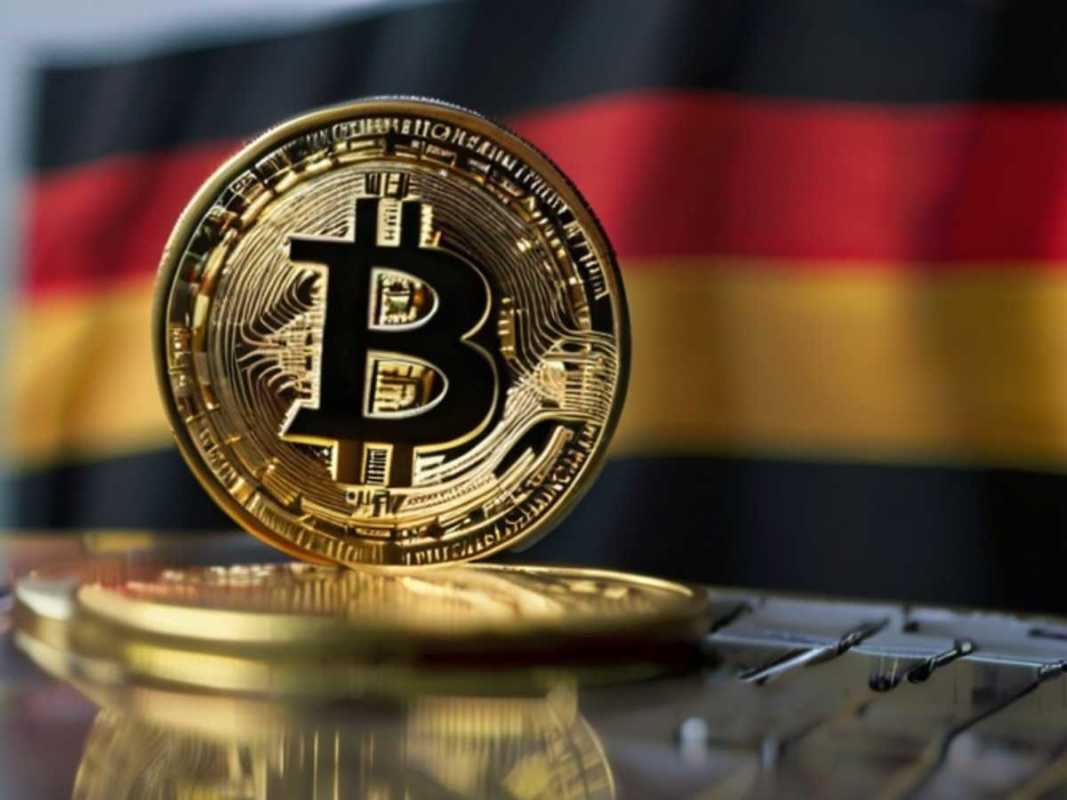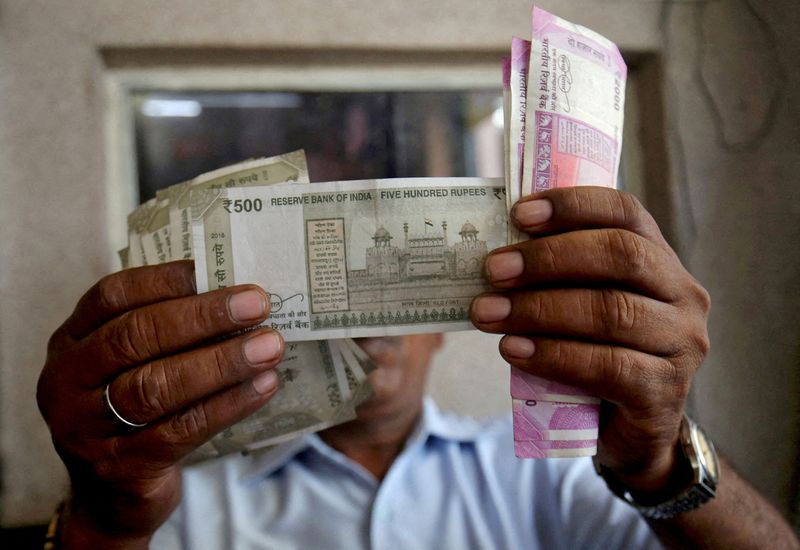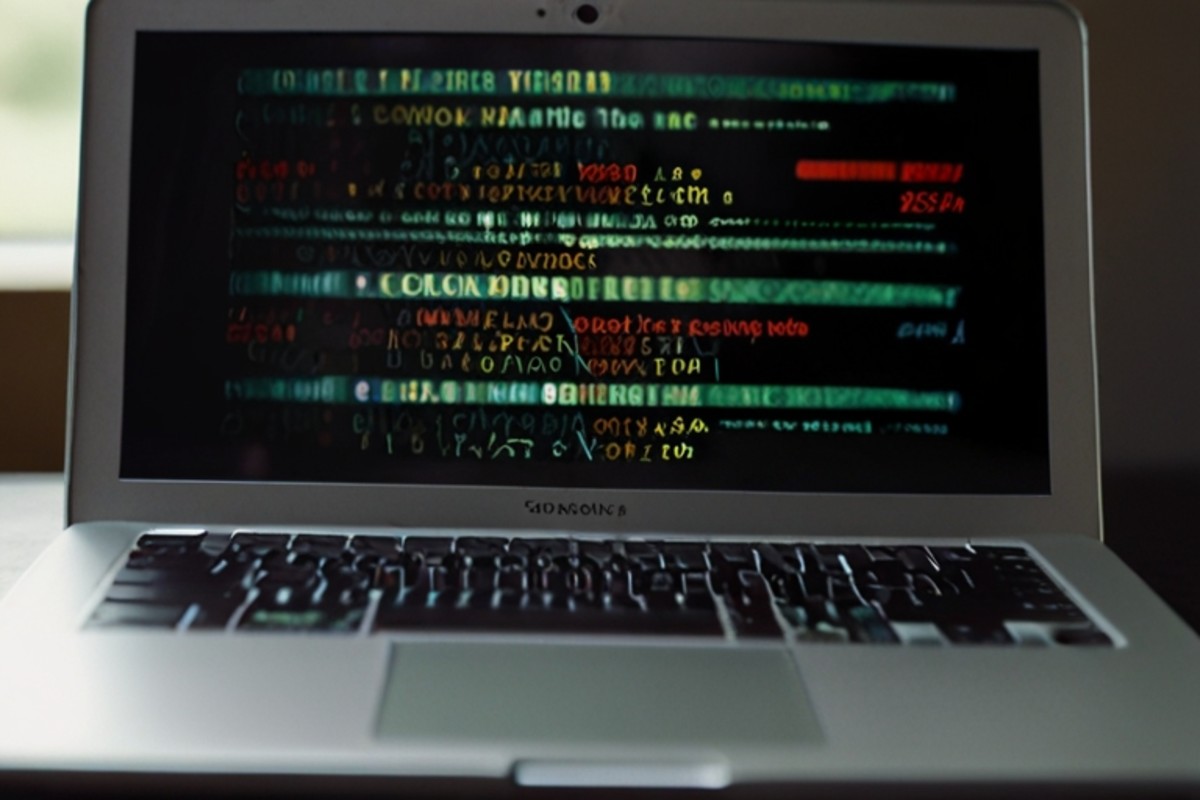Month: July 2024
UK election-winner Starmer inherits weak economy with ‘no magic wand’
Post Content
Asia FX rises ahead of nonfarm payrolls; yen firms amid intervention watch
Post Content
Liberty Doesn’t Ask For Permission
Today is America’s Independence Day, a celebration of our freedom from the British Empire and the tyranny of a bureaucracy removed by thousands of miles of ocean ruling over our lives. The Revolutionary War that won us that freedom is not something that happened overnight, or something that just sparked due to one event or circumstance in the short term, it was the result of over a century of an overbearing government influence on the colonists that resided in North America.
In the same way, Bitcoin was not a thing born out of the singular event of the Great Financial Crisis. Just like colonists for over a century dealing with increasing taxes, overbearing regulations, and general exploitation birthed the United States, decades of parasitic economic and financial actions birthed Bitcoin.
While America and the struggles that led to its creation were rooted in a bureaucracy disconnected by physical distance, Bitcoin was born from troubles rooted in a more existential disconnection rather than one of physical space. In the same way the King and his advisors in England had a disconnected and impersonal view of the human beings on the other side of the Atlantic, today’s bureaucrats have a disconnected and mechanical view of the human beings they rule over despite the lack of physical distance.
Politicians, regulators, bureaucrats, financial executives, none of them see the people they rule over, or make decisions drastically altering the course of their lives or circumstances, as actual people. They see numbers, they see statistics, they see stereotypes and generalizations. They see impersonal figures and patterns that someone seems to fit at a glance, and decide based on that.
They have no empathy, they have no understanding of an individual’s personal circumstances, or situation in life, or the problems they deal with because of automaton like decision making in the halls of Congress, or the SEC building, or a bank.
So why do we look to these people for approval, or a road to success, or some glimmer of hope that they will achieve that understanding? Imagine if a decade after achieving its independence America had turned back to England for help in achieving its success. Does that seem rational to you? Does that seem like a fruitful road to achieving success and prosperity?
The answer should be a resounding no. They don’t care about you, or me, or any of us.
So why do so many Bitcoiners look to these parasites and narcissists for salvation? It is an indication of completely losing the plot, the purpose of what Bitcoin was made for. In a way it is very similar to the current state of America as a nation, lost and disconnected from the purpose and ideals it was initially founded on. Liberty, self determination, justice.
These people are not here to help us, they are not here to turn Bitcoin into a beacon of individual liberty and freedom. They are here to exploit, to subvert, to maintain the position they hold in the world where they can remain callously disconnected from the rest of us in a position of security and luxury for themselves.
America was founded specifically because of the realization that England would not give them self determination or liberty. The founding fathers realized that, and so they set out to achieve it on their own terms, by building something new, something innovative that the world had never seen before.
Bitcoin is no different, but rather than holding fast to those principles and ideals, Bitcoiners seem content to go running back to England for permission to self determination. Asking permission to achieve their liberty.
This is a mistake. Bitcoin was created to be that new, independent, innovative thing the world has never seen before. It was built to stand on its own as a foundation of sovereignty, and self determination. Not something that we beg for permission to have, to build upon, to use.
We need to hold to that, not go begging politicians and regulators for an easy road to “success,” that in reality is simply a failure wrapped in a blanket of cope. Bitcoin is here, it was put here without asking for permission, without begging the King to allow it to be, and here it will stay.
Whether it succeeds or fails doesn’t come down to politicians, or regulators, or Wall Street money, it comes down to us.
Happy Fourth of July to those who still seek self determination instead of permission.
German Government Moves Over $75 Million in Bitcoin to Exchanges
The German government has transferred another chunk of its massive Bitcoin reserves to exchanges.
According to blockchain data, the German Federal Criminal Police Office (BKA) moved roughly $75 million worth of Bitcoin across multiple transactions on July 4th. The funds were spread across exchanges, including Coinbase, Kraken, and Bitstamp.
This comes after the government shifted around $315 million in bitcoin to various platforms since mid-June. Germany has offloaded over $390 million in Bitcoin in under a month.
In 2013, the BKA seized nearly 50,000 bitcoin linked to the former operator of the film piracy website Movie2K. The stash is estimated to be worth $2.3 billion at today’s prices.
The steady flow of bitcoin to exchanges signals Germany’s potential plans to liquidate portions of its reserves. This has sparked fears of impacts on Bitcoin’s market price, which dipped below $58,000 this week.
However, the amounts transferred so far make up a relatively small share of the BKA’s massive Bitcoin trove. After the latest movements, Germany still holds around 40,000 Bitcoin.
The sales mirror similar transfers by the U.S. government in recent weeks. America also holds Bitcoin confiscated from criminal cases, prompting concerns it may be selling reserves.
The liquidations come as creditor repayments from Mt. Gox’s 2014 collapse appear set to begin in July. The timing threatens to compound selling pressure on Bitcoin.
However, proponents argue the amounts equate to a tiny fraction of daily Bitcoin trading volumes.
Dollar edges lower in holiday trade; sterling gains as polling starts
Post Content
Asia FX upbeat as rate cut bets dent dollar; yen on intervention watch
Post Content
Rupee to trade in narrowest range in about 30 years on RBI’s actions
Post Content
Japanese yen fragile as USDJPY nears 162; intervention in focus
Post Content
Karate Combat to Launch at Bitcoin 2024 Conference in Nashville
Karate Combat, a premier full-contact striking league, is set to feature at Bitcoin 2024, the world’s largest Bitcoin conference, later this month in Nashville, Tennessee. The event will take place at the Nashville Municipal Auditorium on July 25th, starting at 6:00 PM ET.
“Feel the intensity of every kick, punch, and block as world-class martial artists and influencers step into the legendary Karate Combat pit to battle it out for supremacy, all under the roof of Bitcoin Nashville,” the event’s website stated. “You don’t want to miss your chance to be part of history in the making.”
The highlight of the event will be the “Influencer Fight Club 3,” featuring high-profile matchups such as Nic “Tungsten Daddy” Carter versus Coty Kuhn and Eric Velie (Grimace) versus Harley Hermanson.
CARTER VS. KUHN
Announcing Karate Combat at #Bitcoin 2024 – watch your favorite influencers duke it out at Bitcoin’s biggest conference! pic.twitter.com/I1xtjHcnaz
— The Bitcoin Conference (@TheBitcoinConf) June 26, 2024
In addition to the influencer fights, the event will also showcase professional bouts, including Sam Alvey facing off against Antonio Arroyo and Saidyokub Kakhramov taking on Jesús López, and more.
Since Karate Combat was established in 2018, the league has rapidly gained popularity. Across 46 events to date, Karate Combat has amassed over 5 million social media followers and generates 100 million organic views each month, being streamed and broadcasted to over 100 countries worldwide.
Bitcoin 2024 pass holders are eligible to attend this event for free, but there is limited number of tickets to the event, so those interested in securing their spot to the Karate Combat are encouraged to RSVP here. A limited number of tickets to the Karate Combat will also be on sale to the general public soon.
For more information on Karate Combat at Bitcoin 2024, visit the event’s website here.
Bitcoin Core Announces New Security Disclosure Policy
A group of Bitcoin Core developers has introduced a comprehensive security disclosure policy to address past shortcomings in publicizing security-critical bugs.
This new policy aims to establish a standardized process for reporting and disclosing vulnerabilities, thereby improving transparency and security within the Bitcoin ecosystem.
Several previously undisclosed vulnerabilities are also included with the announcement.
What is a Security Disclosure?
A security disclosure is a process through which security researchers or ethical hackers report vulnerabilities they discover in software or systems to the affected organization. The goal is to allow the organization to address these vulnerabilities before they can be exploited by malicious actors. This process typically involves discovering the vulnerability, reporting it confidentially, verifying its existence, developing a fix, and finally, publicly disclosing the vulnerability along with details and mitigation advice.
Should Users Be Worried?
The latest Bitcoin Core security disclosures address various vulnerabilities with varying severity. Key issues include multiple denial-of-service (DoS) vulnerabilities that could cause service disruptions, a remote code execution (RCE) flaw in the miniUPnPc library, transaction handling bugs that could lead to censorship or improper orphan transaction management, and network vulnerabilities such as buffer blowup and timestamp overflow leading to network splits.
It is not believed any of those vulnerabilities currently present a critical risk for the Bitcoin network. Regardless, users are strongly encouraged to ensure their software is up to date.
For detailed information, see the commits on GitHub: Bitcoin Core Security Disclosures.
Improving the disclosure process
Bitcoin Core’s new policy categorizes vulnerabilities into four severity levels: Low, Medium, High, and Critical.
Low severity: Bugs that are difficult to exploit or have minimal impact. These will be disclosed two weeks after a fix is released.Medium and High severity: Bugs with significant impact or moderate ease of exploitation. These will be disclosed a year after the last affected release goes end-of-life (EOL).Critical severity: Bugs that threaten the entire network’s integrity, such as inflation or coin theft vulnerabilities, will be handled with ad-hoc procedures due to their severe nature.
This policy aims to provide consistent tracking and standardized disclosure processes, encouraging responsible reporting and allowing the community to address issues promptly.
History of CVE Disclosures in Bitcoin
Bitcoin has experienced several notable security issues, known as CVEs (Common Vulnerabilities and Exposures), over the years. These incidents highlight the importance of vigilant security practices and timely updates. Here are some key examples:
CVE-2012-2459: This critical bug could cause network problems by allowing attackers to create invalid blocks that looked valid, potentially splitting the Bitcoin network temporarily. It was fixed in Bitcoin Core version 0.6.1 and motivated further improvements in Bitcoin’s security protocols.
CVE-2018-17144: A critical bug that could have allowed attackers to create extra Bitcoins, violating the fixed supply principle. This issue was discovered and fixed in September 2018. Users needed to update their software to avoid potential exploitation
Additionally, the Bitcoin community has discussed various other vulnerabilities and potential fixes that have not yet been implemented.
CVE-2013-2292: By creating blocks that take a very long time to verify, an attacker could significantly slow down the network.
CVE-2017-12842: This vulnerability can trick lightweight Bitcoin wallets into thinking they received a payment when they hadn’t. This is risky for SPV (Simplified Payment Verification) clients.
The conversation around these vulnerabilities underscores the ongoing need for coordinated and community-supported updates to Bitcoin’s protocol. Ongoing research around the idea of a consensus cleanup soft fork seeks to address latent vulnerabilities in a unified and efficient manner, ensuring the continued robustness and security of the Bitcoin network.
Maintaining software security is a dynamic process requiring ongoing vigilance and updates. This intersects with the broader debate on Bitcoin ossification—where the core protocol remains unchanged to maintain stability and trust. While some advocate for minimal changes to avoid risks, others argue that occasional updates are necessary to enhance security and functionality.
This new disclosure policy by Bitcoin Core is a step towards balancing these perspectives by ensuring that any necessary updates are well-communicated and managed responsibly.









